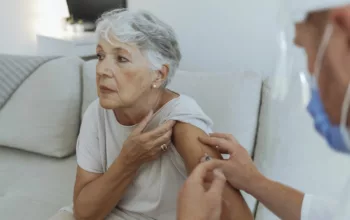A welcome marathon to improve health for all
Authors
Share
This oped was first published on The Nation on 30 January 2019.
It’s clear we live in a global village when England striker Jamie Vardy of Thai-owned Leicester City[1] praises Thai rocker Toon Bodyslam’s 2,215 km charity run over 55 days in 2017 that raised Bt1.37 billion/$35 million for 11 public hospitals and says: “Your actions create inspiration, motivation and hope”[2].
These words should resonate as the global health policy decision-makers’ caravan comes to Bangkok this week to attend the renowned Prince Mahidol Award Conference (PMAC). This year’s edition will focus on tackling the rise of dangerous chronic diseases such as diabetes and cancer that we call non-communicable diseases or NCDs. The Royal Thai Government, which is hosting the event, has much to be proud of when it gathers public health leaders and stakeholders from around the world to brainstorm on high priority global health issues, to share knowledge and experience, and to propose concrete solutions and recommendations. Thailand’s record on the global health stage is commendable.
Seventy-four percent of deaths in Thailand occur as a result of NCDs, which is higher than the global average, prompting the government to enact a 5-year plan to combat it. It is commendable that Thailand is among the top ten performers for NCD prevention and control, on a par with Finland and Norway. Thailand is also the first Asian country to ban trans-fat and the first low- and middle-income country (LMIC) to further de-glamorise smoking and adopt plain packaging for tobacco products.
The theme of this year’s PMAC is “The Political Economy of Non-communicable Diseases: A Whole of Society Approach”. The human, social and economic costs due to NCDs are substantial; over 70% of all global deaths are due to NCDs. The projected cumulative lost output due to major NCDs in LMICs alone for 2011-2025 has been estimated at more than US$ 47 trillion, if no additional mitigation efforts are put in place[3]. This figure represents the “cost of inaction”. The good news is that for every US$1 invested in cost-effective measures proposed by the WHO the so-called “Best buys” – – this will yield a projected return of at least US$7 by 2030: a powerful case for seeing health as an investment.
The fact that more than half of deaths and disabilities due to NCDs are preventable and linked to lifestyle choices means that prevention is half the answer to the NCD challenge. Thailand is clearly taking strong measures to reduce smoking and encourage healthy eating habits. PReMA, an organization which representing research based pharmaceutical companies in Thailand is working collaboratively with civil society, government agencies in developing risk prevention programs to reduce the risk factors associated with NCDs. Regardless many challenges faced in tackling these diseases, PReMA aims to promote the accessibility and availability of innovative medicines and ensure Thai people have a better quality of life. This commitment is not only to promote health and well-being among Thai citizens but also help to reduce government’s burden of treating NCDs in the future.
NCDs is an area where the innovative pharmaceutical industry brings SOLUTIONS. Not only are we the research engine that invented nearly all the medicines we use today in generic form to treat NCDs, we continue to look for tomorrow’s new treatments. But we recognize that we need to do even more. It is often frustrating that patients often have no access to life-saving drugs – even when these are off-patent and thus generally affordable – because of a combination of weak health systems or lack of awareness, early diagnosis or healthcare workers. Improving access to quality medicines requires sustainable and holistic approaches to strengthening country health systems and most importantly that are in sync with national priorities.
No single stakeholder can address NCDs alone and the biopharmaceutical industry seeks to be a meaningful and solutions-oriented partner in developing sustainable, appropriate and affordable solutions at global and local levels). Thus, a coordinated response – among and within sectors – is the right and only way to meet the systemic challenges posed by NCD prevention, treatment and care.
In the year of global focus on Universal Health Coverage (UHC), Vitavas Srivihok, Permanent Representative of Thailand to the United Nations (UN), has been appointed co-facilitator for preparations of the first-ever UN High Level Meeting on Universal Health Coverage in New York in September. We join Dr Tedros, the Director General of the World Health Organization, in warning his Executive Board this week: “The clock is now ticking on the ambitious targets we have set ourselves for the next five years: 1 billion more people benefitting from universal health coverage”.
This is an epic task for the long haul, requiring as much vision and grit as Toon Bodyslam’s marathon but the rewards will undoubtedly be great, in the form of shared goals and greater togetherness. All we need to do is work together and “Kao Kon La Kao” (“Take one step at a time”[4]) to borrow the words of the rock legend’s campaign.
https://www.straitstimes.com/asia/se-asia/thai-rock-star-turns-national-hero-after-two-month-run
http://www.searo.who.int/thailand/news/un-task-force-on-ncds/en/
[1] Vichai Srivaddhanaprabha died in a tragic helicopter crash at the team’s King Power stadium on 29 October 2018; his family retains ownership of the club.
[2] https://forum.thaivisa.com/topic/1014502-video-top-english-football-star-praises-toon-for-inspiration-motivation-and-hope/
[3] Scaling up action against NCDs: How much will it cost?, Geneva, World Health Organization, 2011 https://www.who.int/nmh/publications/cost_of_inaction/en/
[4] http://www.nationmultimedia.com/detail/opinion/30363182
Authors






